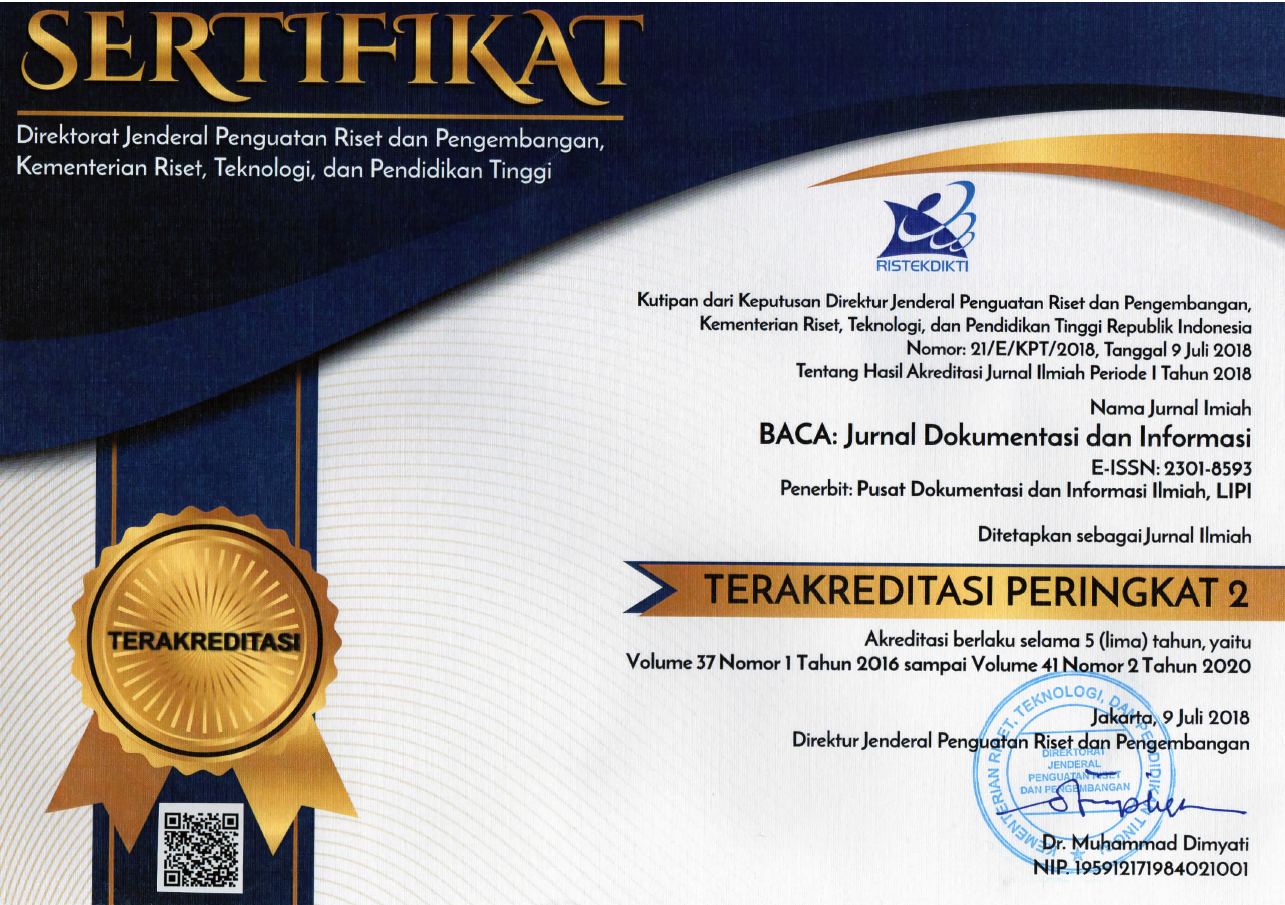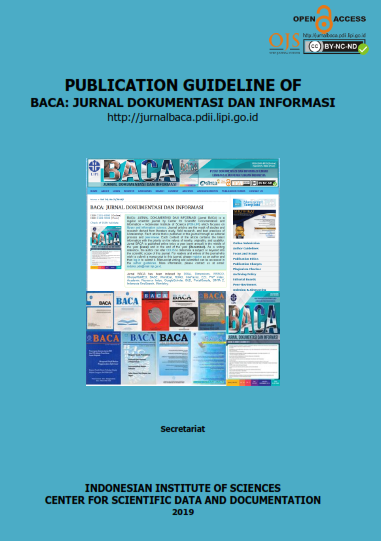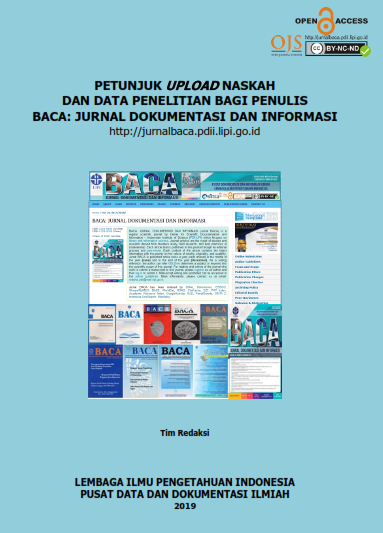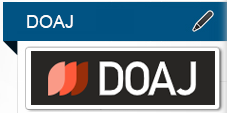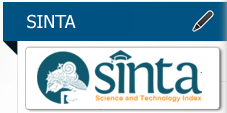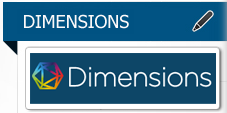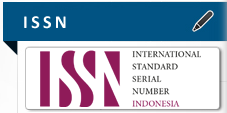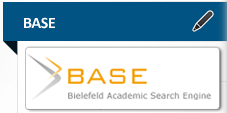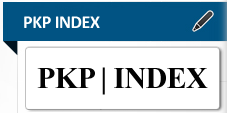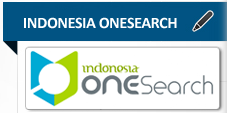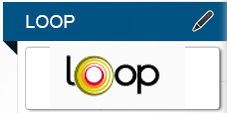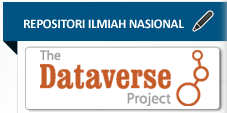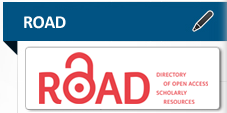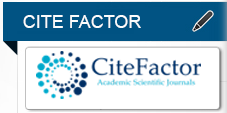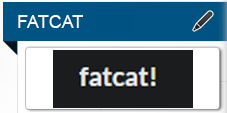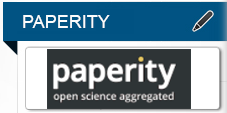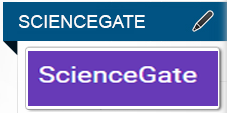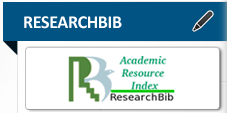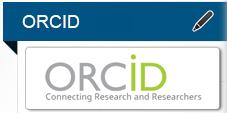ESENSI PROKRASTINASI FUNGSIONAL MEMBENTUK INFORMATION LITERACY SELF-EFFICACY MAHASISWA TINGKAT AKHIR PROGRAM STUDI ILMU PERPUSTAKAAN DI INDONESIA
Abstract
The process of writing a thesis for final year students of the library science study program provides a new platform for developing the ability to manage information to become new knowledge. It is often mentioned that writing a thesis presents its own challenges for students at every stage. The emergence of functional procrastination activity is no exception. The purpose of this study is to describe the essence of functional procrastination activities in the thesis writing process, both individually and in groups. The research method used is descriptive with a qualitative approach involving library science students from two universities as informants. The results showed that functional procrastination activity is an unavoidable but can be minimized part. This condition occurs because students have difficulty in analyzing and determining information based on their information needs. In general, functional procrastination activities have a positive essence on perfecting the results of the thesis, but it should be understood that these conditions need to be minimized considering the limited processing time and the expiration duration of the data held. In addition, the results of the study also found that a series of processes for completing thesis writing by students is a platform for developing information literacy self-efficacy.
Keywords
Full Text:
PDF (Bahasa Indonesia)References
Ghufron, M. Nur & Rini R.S. (2010). Teori-teori psikologi. Ar-ruzzmedi.
Marpaung, J., & Wilany, E. (2016). Hubungan antara self efficacy dan motivasi intrinsik dengan prokrastinasi akademik mahasiswa Fkip Universitas Riau Kepulauan Batam. Jurnal Cahaya Pendidikan, 2(2). https://doi.org/10.33373/chypend.v2i2.643
McAndrews, S. L. & Msengi, S. G. (2013). Transfer and transformation of knowledge and practices from literacy clinic to community. In Advanced Literacy Practices. Published online: 10 Mar 2015; 197-218.
Meulemeester, De. A. (2013). The “information literacy self-efficacy scale” and the medical curriculum At Ghent University. In: Kurbanoğlu S., Grassian E., Mizrachi D., Catts R., Špiranec S. (Eds). Worldwide commonalities and challenges in information literacy research and practice (ECIL 2013, CCIS 397, pp. 465-470). Springer, Cham. https://doi.org/10.1007/978-3-319-03919-0_62
Nonaka, I. & Tayoma, R. (2015). The knowledge-creating theory revisited: Knowledge creation as a synthesizing process. J. S. Edwards (ed.), The Essentials of Knowledge Management.
Odede, I. R. (2018). A Comparative analysis of information literacy self-efficacy skills of postgraduate students in library schools in South-South, Nigeria. Library Philosophy and Practice (E-Journal). 1917, 1-15. https://digitalcommons.unl.edu/libphilprac/1917/
Pendit, P. L. (2003). Penelitian ilmu perpustakaan dan informasi: Suatu pengantar diskusi epistemologi dan metodologi. JIP-FSUI
Prasetyawan, Y. (2018). Pengembangan instrumen pengukuran kemampuan literasi informasi berbasis efikasi diri (self efficacy). Anuva, 2(3), 273-279. https://doi.org/10.14710/anuva.2.3.273-279
Septiono, T. (2019). Peran aktif pustakawan layanan referensi perguruan tinggi dalam menanggapi keanekaragaman kebutuhan informasi pengguna. Journal of Documentation and Information Science, 3(2). 113-128.
Supriatna, N. R. (2018). Bukan hanya tempat mencari informasi, tetapi tempat berbagi pengetahuan: Studi kasus Perpustakaan Chandra Widodo. Jurnal Ilmu Informasi, Perpustakaan, dan Kearsipan, 20(2). http://dx.doi.org/10.7454/jipk.v20i2.117
Yusup, P. M. 2012. Perspektif manajemen pengetahuan, informasi, komunikasi, pendidikan dan perpustakaan. Rajawali Press.
Zinn, S. (2013). The information literacy self-efficacy of disadvantaged teachers in South Africa. In Kurbanoğlu, S. et al. (Eds). Worldwide commonalities and challenges in information literacy research and practice (ECIL 2013, CCIS 397, pp. 212-218). Springer, Cham.
DOI: https://doi.org/10.14203/j.baca.v42i2.736
Copyright (c) 2021 BACA: JURNAL DOKUMENTASI DAN INFORMASI

This work is licensed under a Creative Commons Attribution-NonCommercial-NoDerivatives 4.0 International License.



